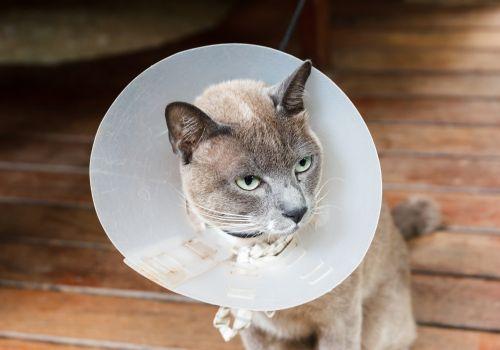
Cat Surgery at The Animal Hospital of Roxbury
At The Animal Hospital of Roxbury, we provide safe, skilled, and compassionate surgical care for dogs and cats, focusing on soft tissue and routine procedures. Whether your pet needs a spay or neuter, mass removal, or abdominal surgery, our experienced veterinary team is here to support you and your pet with the highest standard of care.
We understand that surgery can feel overwhelming—that’s why we prioritize safety, communication, and comfort every step of the way.
Our Surgical Services
Our hospital is equipped to handle a wide range of veterinary surgeries, including:
- Spay and neuter procedures
- Mass and tumor removals
- Wound and laceration repair
- Abdominal exploratory surgery
- Bladder stone removal
- Foreign body removal (e.g., swallowed objects)
- Eye and ear surgeries (e.g., entropion correction, ear hematomas)
- Skin growth removal and biopsy
If your pet needs a specialized procedure, we work with local referral surgeons and are happy to recommend and coordinate that care.
Frequently Asked Questions
What types of surgeries might my cat need during their life?
Cats may need surgery for reasons other than spay or neuter, including:
-
Foreign body removal if they eat something they shouldn’t
-
Dental procedures such as cleanings or extractions
-
Mass removal for lumps or bumps
-
Eye surgeries or injury repair from accidents or bites
How do I prepare my cat for surgery?
Do not feed or give water after 9:00pm the night before surgery. Arrive promptly for your appointment, usually around 8:30am.
What should I expect during my cat's surgery?
Most surgeries are performed under full anesthesia. Many procedures involve dropping off in the morning and picking up the same day, though some surgeries require overnight hospitalization.
How do I choose a veterinarian or surgical specialist for my cat?
Consult your regular veterinarian. They can perform basic surgeries or refer you to a specialist for more complex procedures. Choose a veterinarian you feel comfortable with and trust.
What are the risks associated with surgery for my cat?
Risks include complications with anesthesia, incision infections, or suture issues. Your veterinarian will review these risks before and after surgery.
How is anesthesia used in cat surgery, and is it safe?
Cats typically receive a combination of injectable and inhaled anesthetics. Pre-surgery medications help reduce anxiety and pain. An IV catheter is used to administer anesthetic, and the cat is intubated for gas anesthesia while vital signs are monitored throughout.
What are common signs of complications after surgery in cats?
Watch for redness, swelling, discharge, or pain at the incision site, as well as changes in appetite or behavior. Contact your veterinarian if any occur.
How can I care for my cat during the post-surgery recovery period?
-
Provide rest for up to two weeks (depending on surgery type)
-
Prevent licking or biting the incision using an e-collar or surgical suit
-
Limit jumping, roughhousing, and play for larger surgeries
What should I do if my cat's surgical site looks infected?
Call your veterinarian immediately. If it’s a weekend or after hours, know the location of your nearest emergency veterinary clinic.
How can I manage my cat's pain after surgery?
Most surgeries include prescription pain medications. Do not give over-the-counter human medications. Contact your veterinarian if your cat appears in pain.
Are there dietary changes needed after surgery?
Usually no, except for oral surgeries or extractions. Most cats resume normal feeding the next day.
How long will it take for my cat to recover from surgery?
Recovery depends on the surgery. Smaller procedures may take a couple of days, while larger surgeries may require up to two weeks.
Are there specific post-surgery activities my cat should avoid?
-
Major surgeries: confine your cat to prevent jumping or roughhousing for about two weeks
-
Minor surgeries: cats often return to normal activities within a couple of days
How often should my cat have follow-up appointments after surgery?
Typically around two weeks post-surgery to check healing. Sooner if any issues arise.
What are signs that my cat is healing properly after surgery?
Normal healing may include a slight bump under the incision, minor scabbing, or a small amount of discharge.
How can I help my cat cope with anxiety or stress after surgery?
Some cats may need medication for pain and anxiety. Limit exposure to stressors, and provide a quiet, comfortable space.
What should I do if my cat refuses to eat or drink after surgery?
Contact your veterinarian promptly, as this could become serious.
Are there any long-term effects or care requirements after my cat’s surgery?
Generally, no. Most cats return to normal once fully healed.
How do I prepare my home for a cat recovering from surgery?
Create a calm, quiet space to restrict activity. Limit jumping, roughhousing, and play until cleared by your veterinarian.
When should I contact the vet about concerns after my cat's surgery?
Contact your veterinarian for any redness, swelling, discharge, warmth, pain, or abnormal behavior, including refusal to eat or drink.
If you have questions, we would love to answer them for you. Please give us a call at the office at (973) 691-1771, or you can email us at [email protected]. Our staff would love to talk with you!
Don't forget to follow us on social media Facebook, Instagram.
